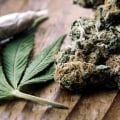Opponents argue that legalization would result in an increase in the number of drug users, destroy families, increase crime and adverse physical effects among drug users. According to drug experts, marijuana is the most popular illegal drug. Rachel Lu defined these black holes in an article entitled “Why the United States will regret legalizing marijuana”, published on The Week website. While she is specifically discussing the legalization of marijuana, her arguments apply equally to the legalization of any drug.
And I fully believe that once marijuana is legalized across the country, marijuana advocates who would later be out of work will shift their focus to other drugs. Think about the crack cocaine epidemic that spread through black communities in the 1980s. The solution consisted of longer jail terms for drug traffickers, up to 30 years for a person who possessed a small amount of the drug. It also applies to high numbers of pain reliever addiction in the Appalachian Hills, partly caused by coal mine workers who suffered injuries and sought pain relief.
The American Civil Liberties Union (ACLU) opposes criminal drug prohibition. Prohibition is not only a proven failure as a drug control strategy, but it subjects otherwise law-abiding citizens to arrests, prosecutions and incarceration for what they do in private. In trying to enforce drug laws, the government violates the fundamental rights of privacy and personal autonomy that are guaranteed by our Constitution. The ACLU believes that unless they harm others, people should not be punished, even if they harm themselves.
There are better ways to control drug use, ways that will ultimately lead to a healthier, freer and less crime-ridden society. They also believe that marijuana is an entry drug and, consequently, an increase in marijuana use would lead to an increase in the use of harder drugs.







